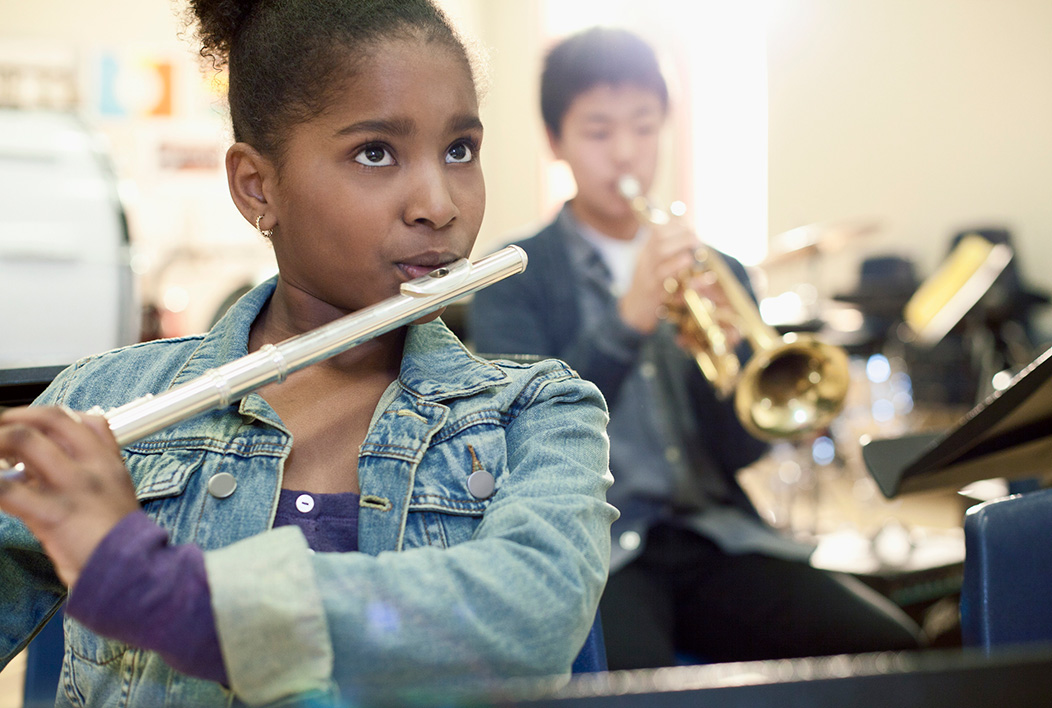Prepare for Creative Programs
Calling all creative types! Applying to an art, drama, music, or dance program might involve more steps than other programs.You’ll need to submit the same high school transcript, test scores, and essays, plus evidence of your artistic talent and skill. But fear not – we’re here to help you put your best foot (or flute, or paintbrush) forward.
Prepare yourself
As you start your application, keep these tips in mind.
- Potential counts: Focus on showing your potential as a future artist. This is often more important than your current technical skill.
- Pay attention to detail: Read the detailed instructions from each college about your submissions. Provide exactly what they ask for.
- Take constructive feedback: Keep an open mind about any criticism you might get about your audition or portfolio. View it as an opportunity for improvement.
- Show your commitment: There are lots of talented students out there. Set yourself apart by presenting yourself as a serious, committed artist with energy, persistence, and work ethic.
- Work with your teachers and coaches: Your teachers, instructors, or coaches can give you more help and guidance as you prepare.
Auditions
How do you get to Carnegie Hall? Practice! The same applies to auditions. The more you prepare, the better. A few things to know:
- Keep track of audition requirements: Different schools have different requirements. Some require pre-screens. And some require live auditions instead of recordings.
- In-person vs. recordings: Find out whether each school requires in-person or recorded auditions. And ask whether each type of audition is weighted the same way.
- Regional auditions: Find out if regional auditions are available at the schools you’re interested in. This might save you some time and travel.
Musical Auditions
Keep these tips in mind as you select your pieces and prepare for auditions.
- Choose your pieces wisely: Try to choose two pieces in contrasting styles. If you’re singing, make sure at least one piece is in English.
- Time yourself: Aim for 8-10 minutes. Colleges may provide more specific direction about timing.
- Bring an accompanist: If you’re singing, plan to bring your own accompanist.
- Know the expectations: Make sure you understand what the college is looking for. Be careful about improvising – you’ll only impress them if you provide what they require.
- Build your portfolio: If you’re playing an instrument, provide a portfolio of no more than five compositions. If you have recordings, include those, too.
- Make a list: Provide a list of all your songs and compositions.
Drama & Dance Auditions
Attention, actors and dancers! Get ready for your moment in the spotlight.
- Be prepared: You may be asked to improvise and demonstrate multiple styles.
- Stay flexible: Some colleges might ask you to perform with other applicants. Keep an open mind.
- Be solid on the basics: Do your best to present good basic technique.
National Portfolio Days
National Portfolio Days are free educational events for artists. Experienced art college representatives will review your portfolio and offer advice and critique. Your portfolio can include finished pieces or works in progress. Visit nationalportfolioday.org for a list of campuses hosting the event.
The National Association for College Admission Counseling offers a Performing and Visual Arts College Fair each fall. This is a great way to learn about programs, admission, financial aid, audition and entrance requirements, and much more.
Wondering where to start in the arts?
College and career fairs are great places to learn more about arts programs and how to apply. Find out about college fairs at Make Your List of Schools.
